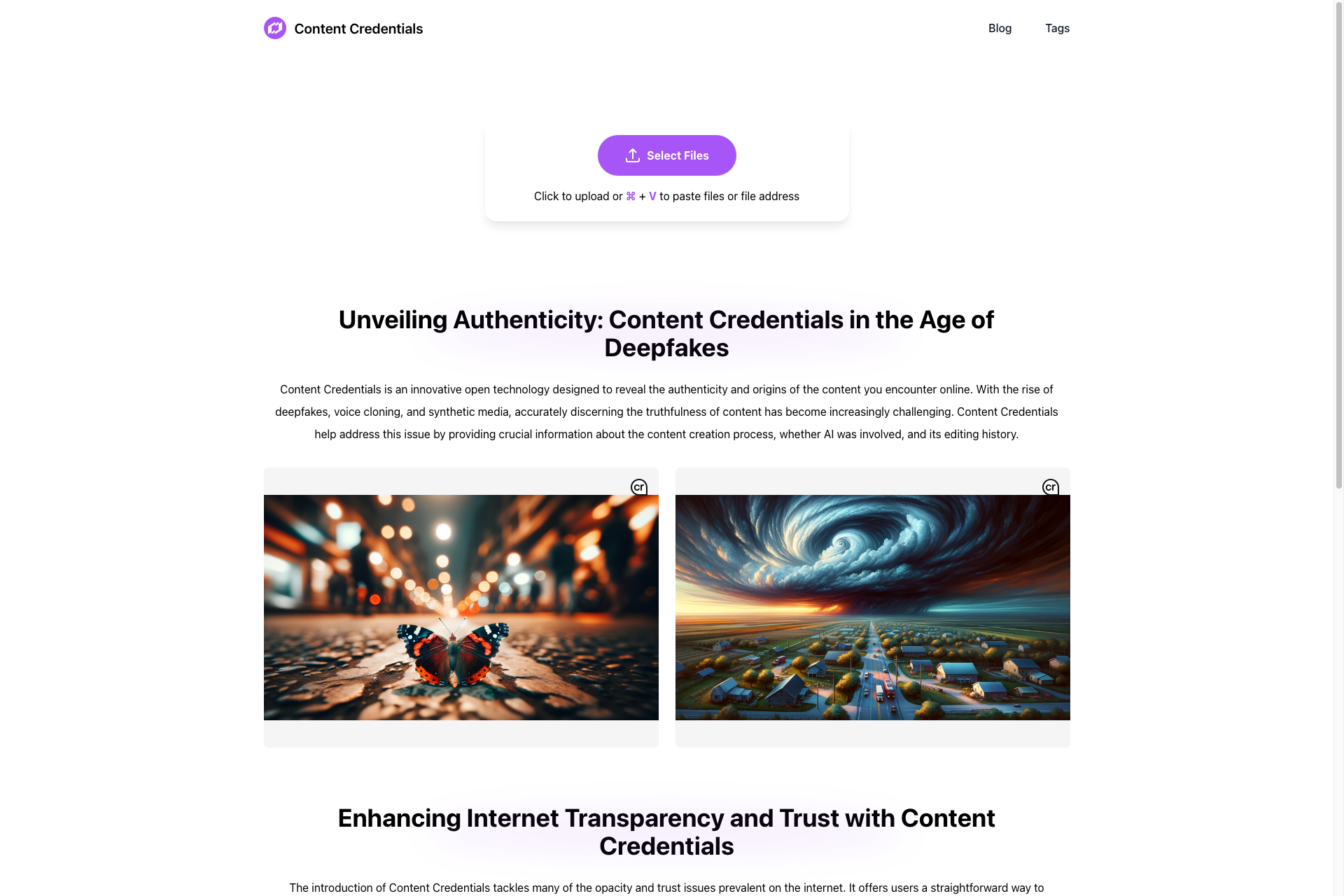Content Credentials based on C2PA
Content Credentials reveals the hidden details of online content, clarifying its creation, edits, and AI use. This tool builds trust in digital media and credits creators, enhancing online transparency and authenticity.

Related Products about Content Credentials based on C2PA

Introducing Recipe Pro: a chatbot that lets you craft unlimited tailored recipes instantly. Simply tell the AI Chef what recipe you want, what ingredients you want it to have and it will generate a recipe for you instantly.

Diafy Chatbot is an AI-powered virtual assistant and support tool that automatically responds to customer inquiries. When integrated into your business's website, it provides visitors with quick and efficient assistance.

We'll find you the best place to eat. We use AI to find the best place to eat near you, wherever you are. FindAMeal combines the data of multiple food review providers and your personal preferences to find new restaurants and cafes for you.

Our technology bridges the gap between imagination and creation, allowing users to generate unique, high-quality images with ease

Pal is a WhatsApp-based AI technology that offers adaptive learning for English speakers to learn Spanish conversationally. Unlike traditional apps that may not lead to fluency, Pal promotes actual practice through its familiar platform.


